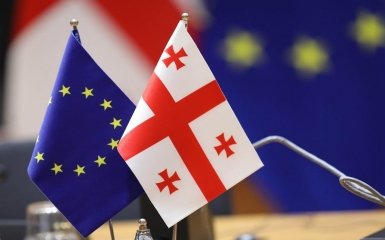After the summit of the European Council, EU leaders decided to suspend Georgia's entry into the economic and political bloc.
Points of attention
- EU leaders have decided to freeze defence support for Georgia and cut direct aid, shifting it to civil society.
- The government of Georgia adopted a billon "foreign agents", which became an obstacle to the start of negotiations on joining the EU.
- Despite the suspension of the process, hopes for further expansion of the EU remain, but Georgia's fate remains unclear.
The process of Georgia's integration into the EU can be resumed after the October elections
The EU Ambassador to Georgia, Pawel Herczynski, discussed it at the international conference in Tbilisi.
According to him, the EU decided to freeze 30 million euros, which are intended to support Georgia in the field of defence.
This is only the first step; there will be others. We will reduce our direct aid to the government of Georgia and try to shift this direct aid to civil society and the media. This was announced after a meeting of foreign ministers in Luxembourg.

Pawel Herczynski
Ambassador of the European Union
He also noted that it is still unclear whether the EU enlargement process will affect Georgia.
Enlargement is one of the most important challenges facing the EU and I sincerely hope that during the next 5 years of work of the newly elected leadership, there will be a big wave of further enlargement of the block. As for Georgia, it is still unclear whether it will be part of the next big wave of EU enlargement. I sincerely hope that it will be so, and after the October elections, we will resume our work and manage to achieve that Georgia becomes part of the further expansion of the EU, — said the ambassador.
Herczynski noted that Georgia's accession to the European Union is currently suspended.
This was stated very clearly by the leaders of the European Union after the summit of the European Council. I cannot imagine that this year Georgia will move forward, take steps, because the EU leaders decided to freeze the accession process. Now they are patiently waiting for greater clarity from the Georgian government, the diplomat explained.
What preceded the suspension of the process of Georgia's accession to the EU
Georgia applied to join the EU in March 2022, weeks after Moscow launched a full-scale invasion of Ukraine, and gained candidate status in December 2023.
The next step was to be the recommendation of the European Commission to the governments of the EU countries to start negotiations on Georgia's accession to the EU, but this depended on the implementation of a number of reforms.
Brussels made it clear: if the bill on "foreign agents" is passed, there will be no recommendations. And it was passed — on June 3, the speaker of the Georgian parliament signed the law, despite the veto of the country's president, Salome Zurabishvili.
This bill is an analogue of the Russian law on "foreign agents".




